Top Home Improvement Franchise Opportunites in 2025


Franchise Opportunities By Industry
Franchise Opportunities By Location
Franchise 101
By Investment Level
Franchise Consultant
White Paper
Playbook


Home improvement franchises are businesses that provide services related to the improvement, remodeling, or repair of homes. Examples of businesses that fall under this category include companies that specialize in roofing, flooring, painting, kitchen and bathroom remodeling and landscaping, as well as companies that offer general contracting services.
{{home-improvement}}
These franchises specialize in transforming and enhancing bathrooms and kitchens, providing services such as remodeling, design updates, and installing new fixtures to create modern and functional spaces.
Founded in: 1971
Franchising since: 1999
Franchise Units: 36
Initial investment range: $136,700 - $334,925
Initial Franchise Fee: $71,990
Royalty: 3-7%
DreamMaker Bath & Kitchen is a renowned company specializing in top-quality kitchen and bathroom remodeling. With a strong emphasis on craftsmanship, integrity, and customer satisfaction, DreamMaker has built a stellar reputation over the years. Offering a comprehensive franchise opportunity, they provide entrepreneurs with a proven business model, extensive training, and ongoing support to succeed in the remodeling industry. As a DreamMaker franchisee, you'll benefit from their established brand, innovative tools, and network of fellow franchise owners. Joining the DreamMaker Bath & Kitchen franchise family is an exciting pathway to tap into a thriving market and deliver exceptional remodeling experiences.
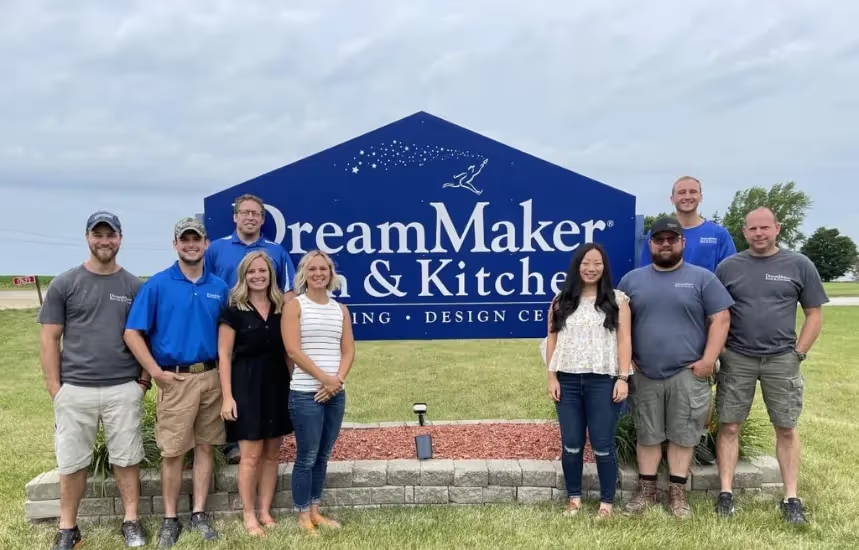
Founded in: 1985
Franchising since: 1988
Franchise Units: 275
Initial investment range: $94,974 - $129,078
Initial Franchise Fee: $72,000
Royalty: 2-7%
Kitchen Tune-Up stands out as a premier franchise specializing in kitchen remodeling services. Recognized for its commitment to enhancing kitchens through various solutions, Kitchen Tune-Up has earned a solid reputation. Their franchise opportunity offers a proven business model, comprehensive training, and ongoing support to guide entrepreneurs. As a Kitchen Tune-Up franchisee, you'll enjoy the benefits of an established brand, innovative techniques, and a collaborative network of fellow franchise owners. Joining the Kitchen Tune-Up franchise provides an exciting avenue to tap into the thriving home improvement market, offering clients remarkable kitchen transformations and helping them fall in love with their homes all over again.
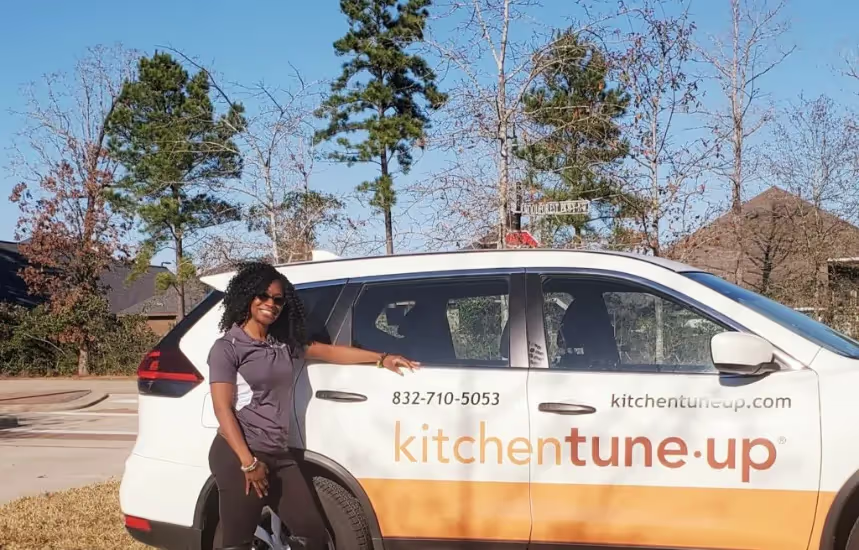
These franchises offer painting services for both residential and commercial properties. Surface refinishing involves repairing and renewing surfaces like countertops, bathtubs, and tiles, giving them a fresh appearance without replacement.
Founded in: 2002
Franchising since: 2005
Franchise Units: 250
Initial investment range: $61,600 - $136,150
Initial Franchise Fee: $40,000
Royalty: 6%
Five Star Painting is a leading company recognized for its exceptional residential and commercial painting services. Renowned for their professionalism and commitment to quality, Five Star Painting is a trusted choice for customers seeking transformative paint projects. The franchise opportunity they offer equips aspiring business owners with a proven framework, comprehensive training, and ongoing guidance. Becoming a Five Star Painting franchisee means gaining access to a reputable brand, cutting-edge resources, and a supportive community of fellow franchisees. Embark on a rewarding journey in the painting industry by joining the Five Star Painting franchise, where your entrepreneurial dreams can flourish.

Founded in: 1979
Franchising since: 1996
Franchise Units: 175
Initial investment range: $84,500 - $145,000
Initial Franchise Fee: $47,750
Royalty: 5.5%
Miracle Method is a prominent franchise specializing in refinishing and restoring bathtubs, countertops, and tile surfaces. Renowned for its innovative approach and high-quality results, Miracle Method has become a trusted name in the home improvement industry. Their franchise opportunity offers a proven business model, comprehensive training, and ongoing support to empower entrepreneurs. As a Miracle Method franchisee, you'll gain access to a well-established brand, cutting-edge techniques, and a supportive network of fellow franchise owners. Joining the Miracle Method franchise opens doors to a dynamic market, allowing you to provide exceptional refinishing solutions and contribute to transforming homes with cost-effective and beautiful results.

Founded in: 2005
Franchising since: 2005
Franchise Units: 165
Initial investment range: $54,045 - $76,945
Initial Franchise Fee: $45,095
Royalty: 6%
Fresh Coat is a distinguished franchise in the painting industry, renowned for its professional and transformative painting services. With a focus on quality and customer satisfaction, Fresh Coat has established itself as a reliable choice for both residential and commercial projects. Their franchise opportunity offers a proven business model, comprehensive training, and ongoing support for entrepreneurs. As a Fresh Coat franchisee, you'll gain access to a well-established brand, innovative painting techniques, and a network of supportive fellow franchise owners. Joining the Fresh Coat franchise provides a dynamic pathway to tap into the evergreen demand for painting services, allowing you to deliver exceptional results and contribute to enhancing spaces within your community while building a successful and rewarding business.
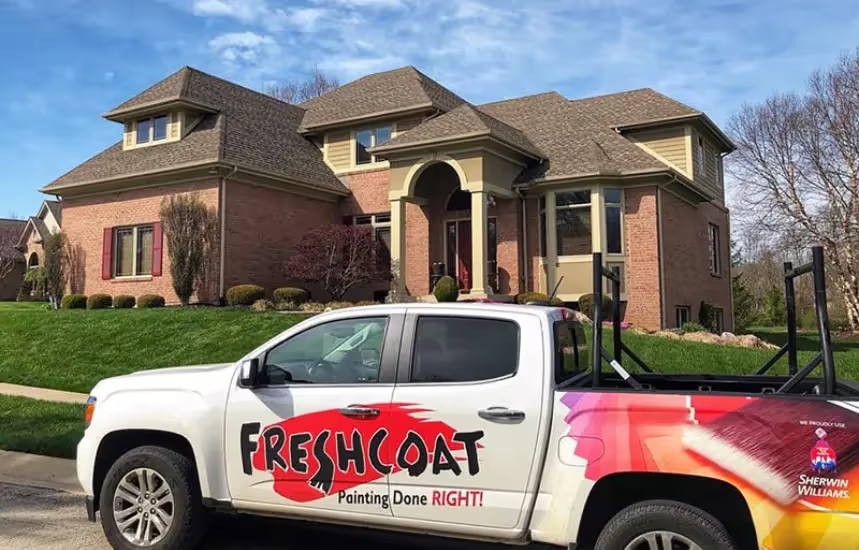
Handyman franchises provide a variety of repair and maintenance services for homes and businesses. They address tasks ranging from small fixes to more complex projects, offering convenience and expertise to customers.
Founded in: 1996
Franchising since: 2000
Franchise Units: 333
Initial investment range: $117,500 - $149,100
Initial Franchise Fee: $65,400
Royalty: 7%
Mr. Handyman holds a distinguished position as a leading franchise in the home repair and maintenance industry. Known for its professional and reliable services, Mr. Handyman has earned the trust of homeowners seeking efficient solutions. Their franchise opportunity provides a proven business model, comprehensive training, and ongoing support to guide entrepreneurs on their journey. As a Mr. Handyman franchisee, you'll enjoy the advantages of an established brand, skilled techniques, and a collaborative network of fellow franchise owners. Joining the Mr. Handyman franchise offers a dynamic pathway to tap into the steady demand for home repairs and maintenance, allowing you to provide exceptional services and contribute to the upkeep and improvement of homes within your community.
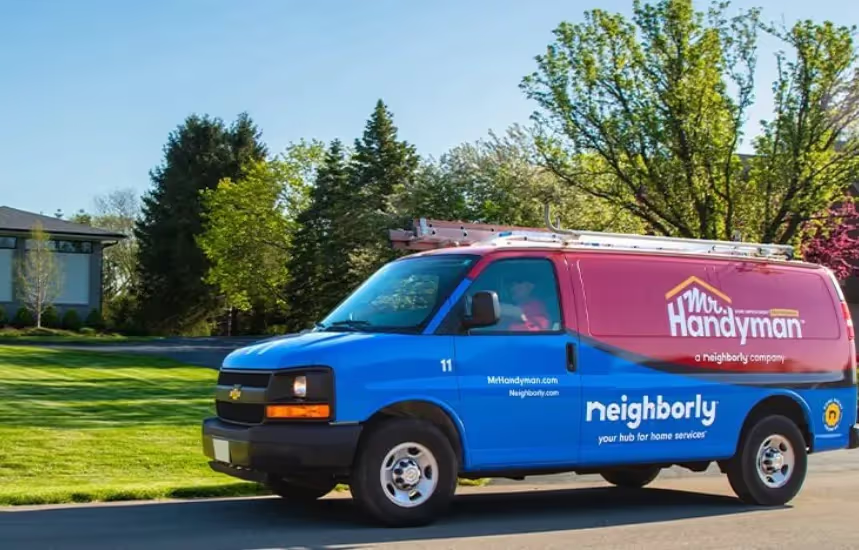
Founded in: 1998
Franchising since: 2001
Franchise Units: 131
Initial investment range: $97,477 - $152,447
Initial Franchise Fee: $28,543 - $41,344
Royalty: 8%
Ace Handyman Services holds a distinguished position as a franchise specializing in professional home repair and maintenance solutions. Recognized for its reliability and wide-ranging expertise, Ace Handyman Services has become a trusted name for homeowners seeking efficient solutions. Their franchise opportunity offers a proven business model, comprehensive training, and ongoing support for entrepreneurs. As an Ace Handyman Services franchisee, you'll benefit from an established brand, skilled techniques, and a network of collaborative fellow franchise owners. Joining the Ace Handyman Services franchise provides an exciting avenue to tap into the consistent demand for home repairs and maintenance, allowing you to provide clients with exceptional services and contribute to the upkeep and improvement of homes within your community while building a successful and reliable business.
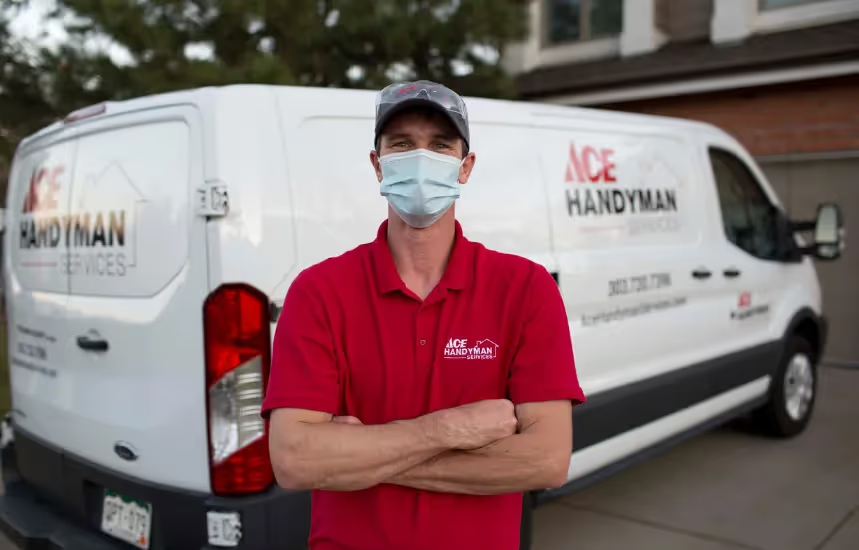
These franchises focus on window coverings, providing a range of options such as blinds, shades, and curtains. They offer both aesthetic enhancement and practical light control for residential and commercial spaces.
Founded in: 1992
Franchising since: 1994
Franchise Units: 1,380
Initial investment range: $125,340 - $254,370
Initial Franchise Fee: $89,950
Royalty: 6%
Budget Blinds stands out as a distinguished franchise specializing in window covering solutions. Renowned for its extensive product range and personalized approach, Budget Blinds has become a trusted name in enhancing both residential and commercial spaces. Their franchise opportunity presents a proven business model, comprehensive training, and ongoing support for entrepreneurs. As a Budget Blinds franchisee, you'll enjoy the benefits of an established brand, diverse product offerings, and a network of collaborative fellow franchise owners. Joining the Budget Blinds franchise provides an exciting avenue to tap into the consistent demand for window treatments, allowing you to deliver exceptional results and contribute to transforming interiors within your community while building a successful and customer-focused business.
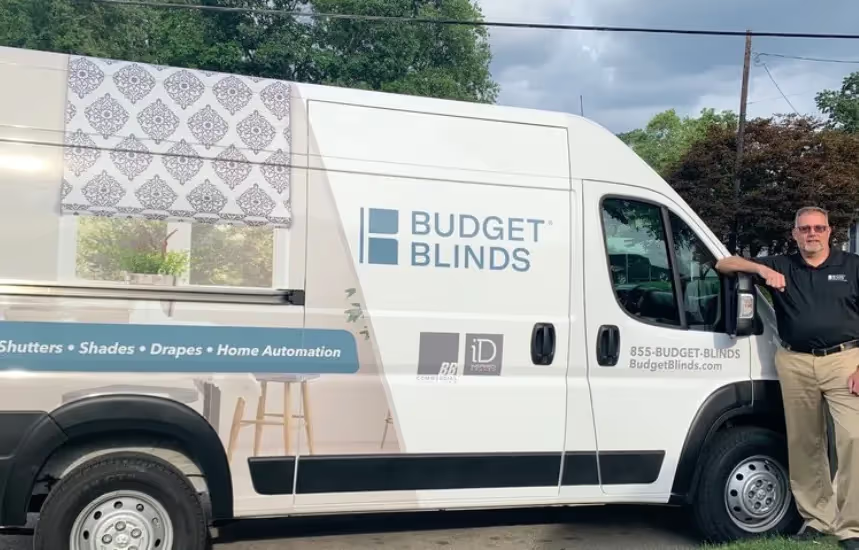
Closet solution franchises specialize in optimizing storage spaces by designing and installing customized closet systems. These systems help maximize space utilization and organization within wardrobes, closets, and storage areas.
Founded in: 1978
Franchising since: 1982
Franchise Units: 144
Initial investment range: $301,000 - $949,500
Initial Franchise Fee: $82,500
Royalty: 6%
California Closets holds a prominent position as a franchise specializing in customized storage and organization solutions. Renowned for its innovative designs and high-quality craftsmanship, California Closets has become a trusted name in optimizing both residential and commercial spaces. Their franchise opportunity offers a proven business model, comprehensive training, and ongoing support for entrepreneurs. As a California Closets franchisee, you'll benefit from an established brand, creative design expertise, and a network of collaborative fellow franchise owners. Joining the California Closets franchise presents an exciting pathway to tap into the consistent demand for tailored storage solutions, allowing you to provide clients with organized and functional spaces while building a successful and design-focused business.
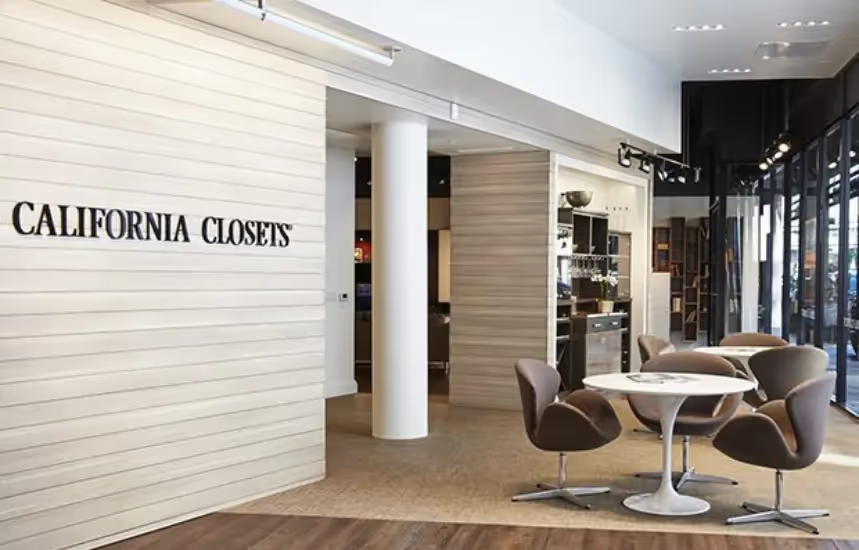
Plumbing franchises offer a range of plumbing solutions, including repairs, installations, and maintenance for both residential and commercial properties. They address issues related to pipes, fixtures, and drainage systems.
Founded in: 2013
Franchising since: 2015
Franchise Units: 30
Initial investment range: $75,410 - $242,475
Initial Franchise Fee: 49,500
Royalty: 8%
1-800-Plumber holds a prominent position as a franchise specializing in plumbing and HVAC services. Renowned for its professionalism and swift response, 1-800-Plumber has become a trusted name in addressing plumbing and heating/cooling needs. Their franchise opportunity offers a proven business model, comprehensive training, and ongoing support for entrepreneurs. As a 1-800-Plumber franchisee, you'll enjoy the benefits of an established brand, skilled techniques, and a network of supportive fellow franchise owners. Joining the 1-800-Plumber franchise presents an exciting avenue to tap into the essential demand for plumbing and HVAC solutions, allowing you to provide clients with reliable services and contribute to maintaining functional and comfortable homes within your community while building a successful and vital business.
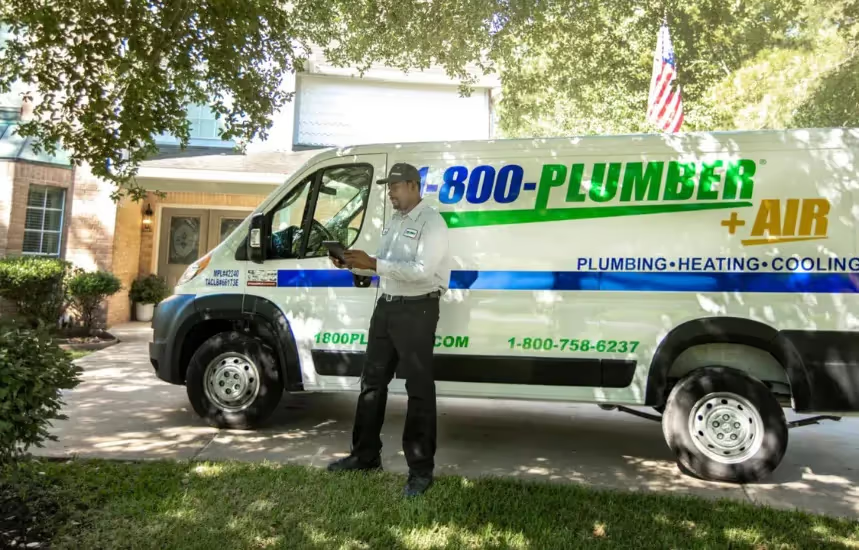
Flooring franchises provide installation and maintenance services for various types of flooring materials, catering to both residential and commercial clients. They offer expertise in enhancing interior spaces through flooring solutions.
Founded in: 2008
Franchising since: 2013
Franchise Units: 168
Initial investment range: $65,500 - $91,600
Initial Franchise Fee: $58,850
Royalty: 8%
Footprints Floors holds a prominent position as a franchise specializing in hardwood flooring installation and refinishing services. Renowned for its dedication to quality and craftsmanship, Footprints Floors has become a trusted name in enhancing the aesthetics and value of homes. Their franchise opportunity offers a proven business model, comprehensive training, and ongoing support for entrepreneurs. As a Footprints Floors franchisee, you'll enjoy the benefits of an established brand, expert techniques, and a network of supportive fellow franchise owners. Joining the Footprints Floors franchise presents an exciting avenue to tap into the consistent demand for flooring solutions, allowing you to provide clients with stunning and durable results while contributing to the transformation of interiors within your community. Build a successful and visually impactful business with the Footprints Floors franchise.

Pest control franchises focus on eliminating and preventing pest infestations in homes and businesses. They use a combination of methods to ensure properties are free from pests and insects that can cause damage and health concerns.
Founded in: 2004
Franchising since: 2005
Franchise Units: 235
Initial investment range: $65,800 - $86,925
Initial Franchise Fee: $41,200
Royalty: 6%
Mosquito Squad holds a distinguished position as a franchise specializing in mosquito and pest control services. Recognized for its effectiveness and commitment to outdoor comfort, Mosquito Squad has become a trusted name for homeowners seeking relief from pests. Their franchise opportunity offers a proven business model, comprehensive training, and ongoing support for entrepreneurs. As a Mosquito Squad franchisee, you'll benefit from an established brand, innovative techniques, and a network of collaborative fellow franchise owners. Joining the Mosquito Squad franchise provides an exciting avenue to tap into the growing demand for pest control, allowing you to provide clients with mosquito-free outdoor spaces and contribute to enhancing their quality of life within your community. Build a successful and essential business with the Mosquito Squad franchise.

These franchises specialize in renewing and enhancing wood surfaces, including floors, cabinets, and furniture. They offer services such as sanding, staining, and sealing to restore the beauty of wood surfaces.
Founded in: 2001
Franchising since: 2006
Franchise Units: 561
Initial investment range: $51,970 - $167,023
Initial Franchise Fee: $47,259
Royalty: 6%
N-Hance is a leading franchise in the wood refinishing industry, known for its innovative and cost-effective solutions for cabinets and floors. With a focus on transforming spaces through beautifully renewed surfaces, N-Hance has garnered a strong reputation. Their franchise opportunity offers a proven business model, extensive training, and ongoing support. As an N-Hance franchisee, you'll benefit from a well-established brand, advanced techniques, and a network of fellow franchise owners. Joining the N-Hance franchise provides a dynamic pathway to tap into the growing demand for renovation and deliver exceptional wood refinishing services.
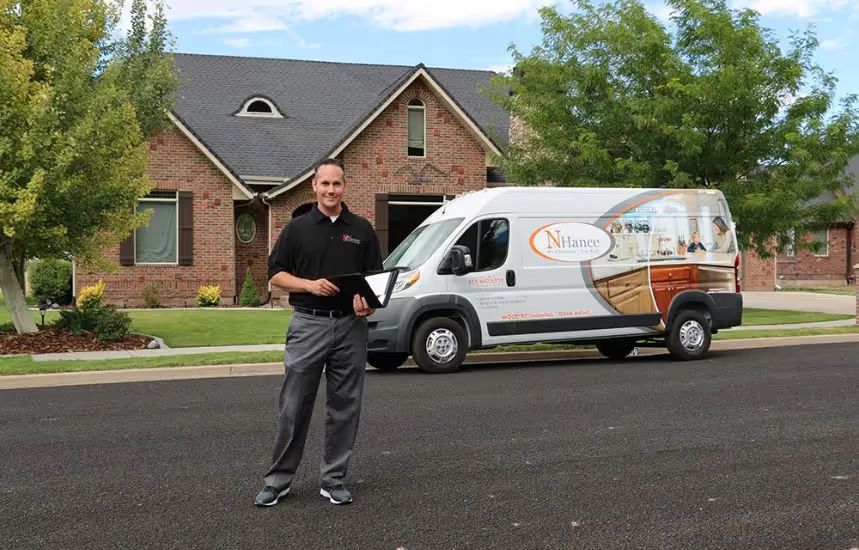
Exterior renovation franchisees provide services that improve the exterior appearance and functionality of properties. This can include tasks such as siding replacement, roofing repairs, and other enhancements to boost curb appeal.
Founded in: 2018
Franchising since: 2018
Franchise Units: 32
Initial investment range: $44,036 - $71,548
Initial Franchise Fee: $15,611 - $22,392
Royalty: 6%
Ideal Siding stands as a distinguished franchise specializing in exterior siding and renovation services. Recognized for its commitment to enhancing curb appeal and protecting homes, Ideal Siding has become a trusted name in the home improvement industry. Their franchise opportunity offers a proven business model, comprehensive training, and ongoing support for entrepreneurs. As an Ideal Siding franchisee, you'll gain access to an established brand, advanced siding techniques, and a network of collaborative fellow franchise owners. Joining the Ideal Siding franchise provides an exciting avenue to tap into the growing demand for exterior renovations, allowing you to provide clients with transformative results and contribute to improving the aesthetics and value of properties within your community while building a successful and impactful business.

Solar energy franchises focus on providing solar power solutions for homes and businesses. They offer installation and maintenance of solar panels and related systems to harness renewable energy and reduce electricity costs.
Founded in: 2020
Franchising since: 2020
Franchise Units: 40
Initial investment range: $85,035 - $162,489
Initial Franchise Fee: $28,543 - $41,344
Royalty: 6%
Solar Grids holds a prominent position as a franchise specializing in solar energy solutions. Recognized for its commitment to sustainability and renewable energy, Solar Grids has become a trusted name in providing solar power systems for both residential and commercial properties. Their franchise opportunity offers a proven business model, comprehensive training, and ongoing support for entrepreneurs. As a Solar Grids franchisee, you'll gain access to an established brand, cutting-edge solar technologies, and a network of supportive fellow franchise owners. Joining the Solar Grids franchise offers a dynamic pathway to tap into the growing demand for clean energy solutions, allowing you to contribute to a greener future by providing clients with efficient and eco-friendly solar power options while building a successful and impactful business.

Home insulation franchises offer insulation installation services to improve energy efficiency and comfort within buildings. They address issues related to proper insulation in walls, attics, and other areas.
Founded in: 1985
Franchising since: 2007
Franchise Units: 100
Initial investment range: $149,750 - $270,000
Initial Franchise Fee: $70,000
Royalty: 5%
USA Insulation stands as a distinguished franchise specializing in energy-efficient home insulation services. Recognized for its commitment to sustainability and cost savings, USA Insulation has become a trusted name in enhancing residential comfort. Their franchise opportunity offers a proven business model, comprehensive training, and ongoing support for entrepreneurs. As a USA Insulation franchisee, you'll benefit from an established brand, advanced insulation techniques, and a network of collaborative fellow franchise owners. Joining the USA Insulation franchise presents an exciting avenue to tap into the growing demand for energy efficiency, providing homeowners with impactful insulation solutions and contributing to a greener future while building a successful and environmentally conscious business.
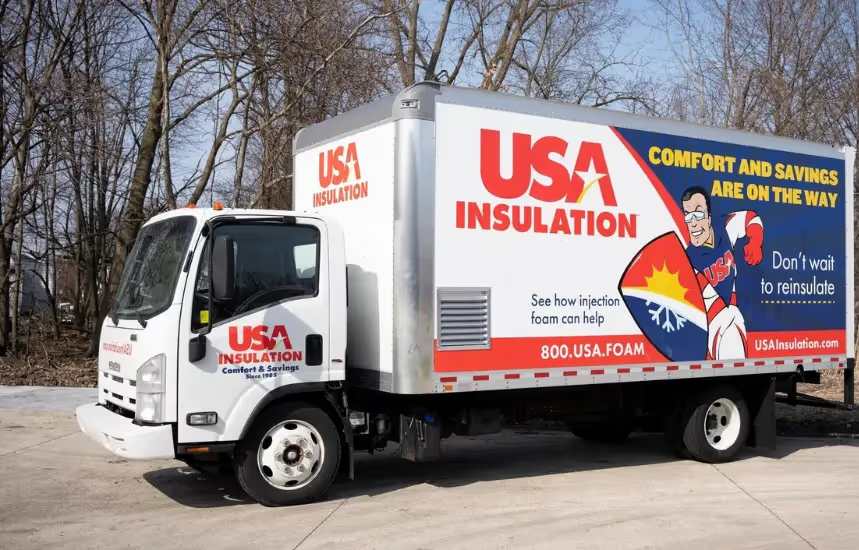
These franchises provide customers with the option to rent furniture for their homes with the possibility of ownership over time. This offers flexibility and convenience for individuals seeking furnishing solutions.
Founded in: 1961
Franchising since: 1961
Franchise Units: 122
Initial investment range: $385,166 - $912,594
Initial Franchise Fee: $100,860
Royalty: 6%
Buddy's Home Furnishings holds a distinguished position as a franchise specializing in rent-to-own furniture, appliances, and electronics. Renowned for its flexible payment options and quality products, Buddy's Home Furnishings has become a trusted name for customers seeking affordable and convenient solutions. Their franchise opportunity offers a proven business model, comprehensive training, and ongoing support for entrepreneurs. As a Buddy's Home Furnishings franchisee, you'll enjoy the benefits of an established brand, diverse product offerings, and a network of collaborative fellow franchise owners. Joining the Buddy's Home Furnishings franchise presents an exciting avenue to tap into the consistent demand for affordable household items, allowing you to provide clients with accessible options and contribute to improving their living spaces within your community. Build a successful and customer-focused business with the Buddy's Home Furnishings franchise.
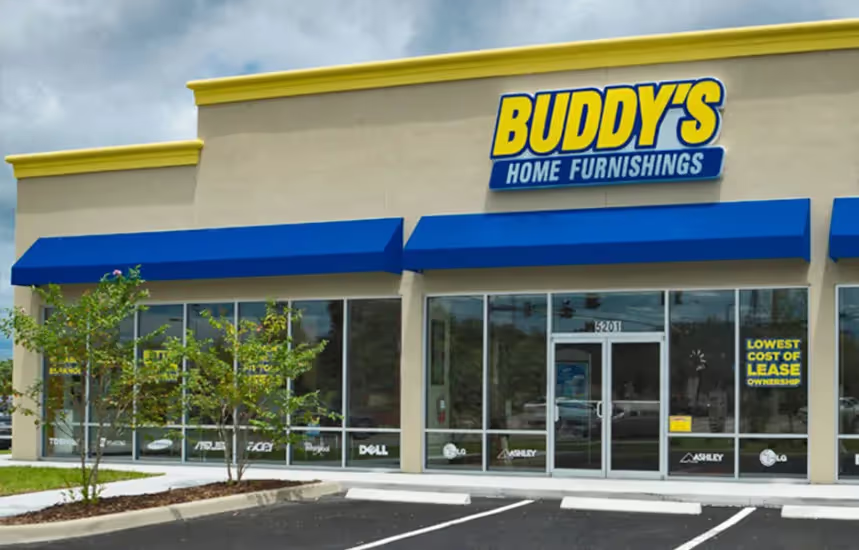
Property restoration franchises specialize in disaster recovery and cleanup services. They assist in restoring properties damaged by events such as floods, fires, and other emergencies, providing cleanup, repair, and restoration services.
Founded in: 1967
Franchising since: 1969
Franchise Units: 100+
Initial investment range: $156,075 - $209,950
Initial Franchise Fee: $49,000
Royalty: 3-10%
SERVPRO stands as a prominent franchise in the property restoration and cleanup industry. Renowned for its swift response and exceptional service, SERVPRO has become a trusted name in times of disasters and emergencies. Their franchise opportunity offers a proven business model, comprehensive training, and ongoing support for entrepreneurs. As a SERVPRO franchisee, you'll gain access to a well-established brand, advanced techniques, and a network of supportive fellow franchise owners. Joining the SERVPRO franchise opens doors to a vital market, enabling you to provide essential restoration services and aid communities in times of need, all while building a successful and impactful business.
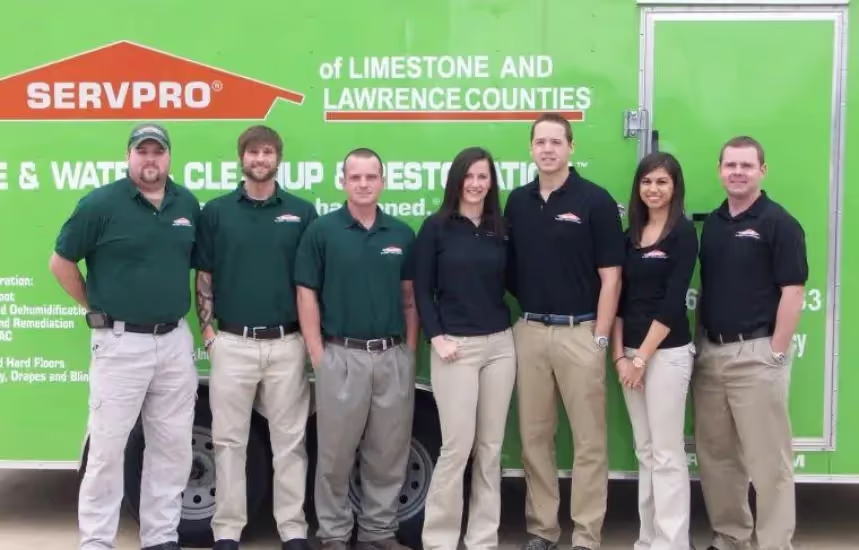
Founded in: 2005
Franchising since: 2011
Franchise Units: 6
Initial investment range: $138,750 - $305,567
Initial Franchise Fee: $35,000
Royalty: 6%
Vital Restoration holds a distinguished position as a franchise specializing in disaster restoration and cleanup services. Recognized for its prompt response and commitment to restoring properties, Vital Restoration has become a trusted name for homeowners and businesses during times of emergencies. Their franchise opportunity offers a proven business model, comprehensive training, and ongoing support for entrepreneurs. As a Vital Restoration franchisee, you'll benefit from an established brand, advanced restoration techniques, and a network of collaborative fellow franchise owners. Joining the Vital Restoration franchise provides an essential avenue to tap into the critical demand for disaster recovery, allowing you to provide clients with effective restoration solutions and aid communities in times of crisis within your area. Build a successful and impactful business with the Vital Restoration franchise.

Mr. Appliance is a leading appliance repair franchise that offers professional services for a wide range of household and commercial appliances. With skilled technicians, a strong reputation for reliability, and a commitment to excellent customer service, Mr. Appliance stands out as a trusted choice for appliance repair needs.
Founded in: 1996
Franchising since: 1996
Franchise Units: 349
Initial investment range: $60,800 - $139,515
Initial Franchise Fee: $35,000
Royalty: 5-7%
Mr. Appliance is a distinguished franchise specializing in professional appliance repair services. Renowned for its expertise and commitment to customer satisfaction, Mr. Appliance has become a trusted name for repairing a wide range of household appliances. Their franchise opportunity presents a proven business model, comprehensive training, and ongoing support for entrepreneurs. As a Mr. Appliance franchisee, you'll gain access to a well-established brand, specialized techniques, and a network of supportive fellow franchise owners. Joining the Mr. Appliance franchise opens doors to a vital and consistent market, allowing you to provide essential repair services and play a crucial role in maintaining functional homes, all while building a successful and reliable business.
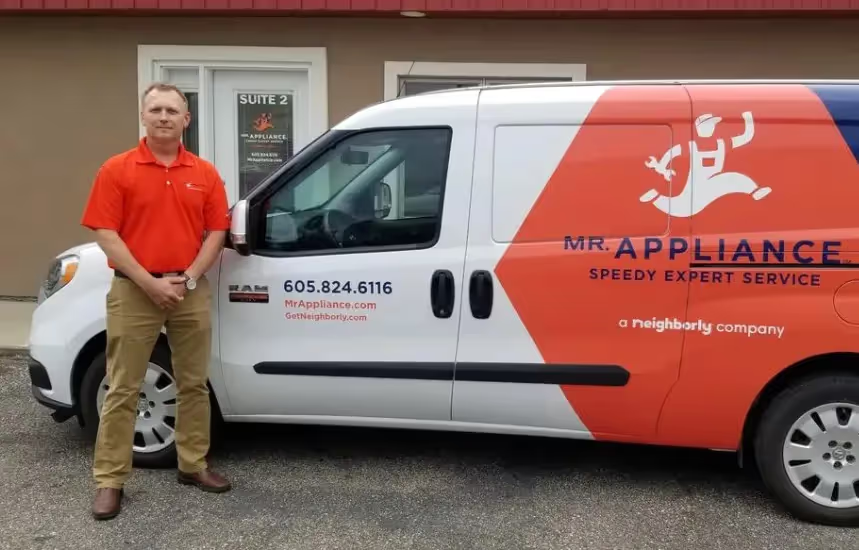
Concrete Craft is a prominent decorative concrete franchise that specializes in transforming ordinary concrete surfaces into visually appealing and functional spaces. Their innovative techniques, customizable designs, and extensive experience in stamped, stained, and resurfaced concrete make them a standout choice for those seeking high-quality decorative concrete solutions.
Founded in: 2006
Franchising since: 2008
Franchise Units: 90
Initial investment range: $97,240 - $166,110
Initial Franchise Fee: $28,543 - $41,344
Royalty: 6%
Concrete Craft is a prominent franchise specializing in decorative concrete solutions, recognized for its innovation and high-quality craftsmanship. With a focus on transforming ordinary concrete surfaces into visually appealing and durable works of art, Concrete Craft has earned a reputation for excellence. Their franchise opportunity offers a proven business model, comprehensive training, and ongoing support for entrepreneurs. As a Concrete Craft franchisee, you'll benefit from an established brand, advanced decorative techniques, and a network of collaborative fellow franchise owners. Joining the Concrete Craft franchise presents an exciting avenue to tap into the growing demand for unique and customizable concrete finishes, allowing you to provide clients with stunning and functional surfaces while building a successful and creative business.
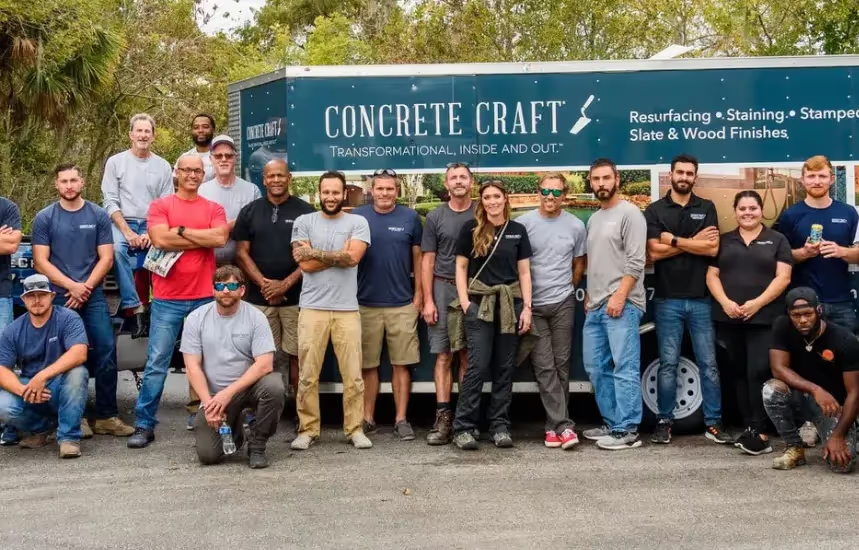
Owning a home improvement franchise can be a profitable business opportunity, but it depends on a variety of factors and requires a significant initial investment. According to a report by Franchise Business Review, the average franchisee with a home improvement franchise earns an annual income of $97,000. However, this can vary greatly depending on factors such as the franchise's fee structure, marketing costs, and the size of the business.
It's also important to note that owning a franchise requires an initial investment, and the cost of starting a home improvement franchise can vary widely. Additionally, many home improvement franchises require ongoing royalties and other fees that can add to the cost of running the business.
The home improvement franchise industry has seen several trends in recent years. Some of these trends include:
Trend 1: Growth in the industry: According to a report by IBISWorld, the home improvement franchise industry has been growing at an average annual rate of 3.2% from 2016 to 2021.
Trend 2: Home renovation boom: The COVID-19 pandemic has led to a boom in home renovation as more people are spending time at home. According to a report by Zillow, home renovation spending is expected to reach $340 billion in 2021, a 14% increase from 2020.
Trend 3: Increase in online sales: Many home improvement franchises are seeing an increase in online sales as more people shop for home improvement products and services online.
Trend 4: Focus on sustainability: Many home improvement franchises are focusing on sustainable products and practices, such as energy-efficient windows and solar panels. According to a report by the National Renewable Energy Laboratory, the U.S. solar market is expected to double by 2024.
Trend 5: Increase in DIY projects: With more people staying at home, the number of people undertaking DIY projects has increased. According to a report by the Home Improvement Research Institute, the DIY market is expected to reach $329 billion by 2025.
It's worth noting that these trends may vary from region to region, and depending on the specific franchise. It's essential to research the home improvement industry and your specific market before starting a business, which you can do with the help of Franchise Clues.
The initial investment and opening costs for home improvement franchises can vary widely depending on the specific franchise and the location of the business. Some franchises require a relatively low initial investment, while others require a significant investment. The costs also depend on the size of the location, if the location is already built or if it requires building a new one, the inventory, and many more factors.
Here is a more specific idea of the costs involved in starting a home improvement franchise:
It's worth noting that these costs can vary depending on the location, size of the business, the franchise package and other factors, so it's important to research and consult with the franchise company for more accurate numbers.
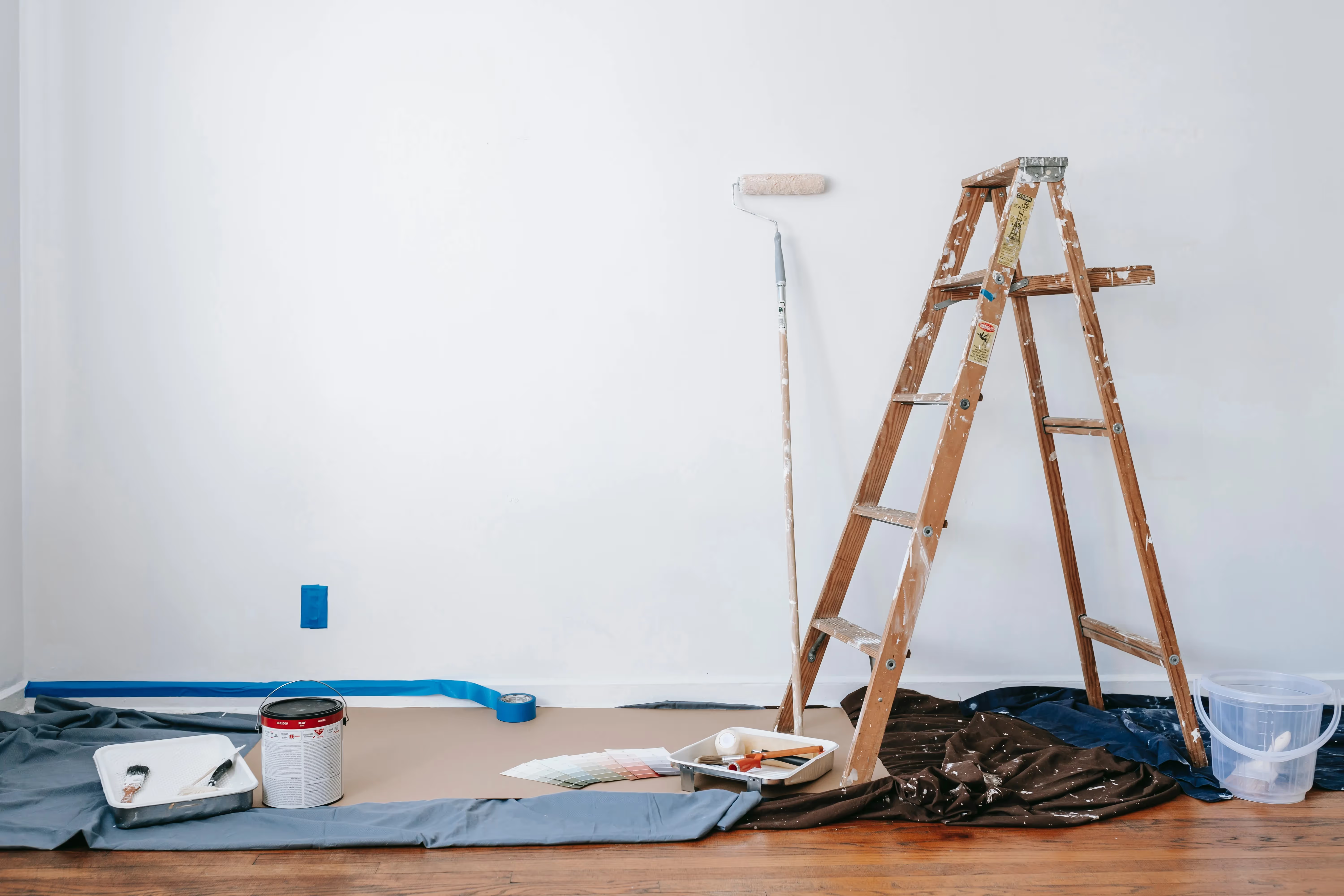
Opening an home improvement franchise can offer several benefits to entrepreneurs. Some of these benefits include:
In addition to the general benefits of opening a home improvement franchise, there are also several niche-specific benefits that can be gained depending on the type of home improvement franchise. Here are a few examples:
When opening a home improvement franchise, there are several key points to pay attention to:
The points above are the general points, now more category specific ones:
It's always recommended to conduct thorough research and consult with the franchise company, a lawyer, and an accountant before making decisions.